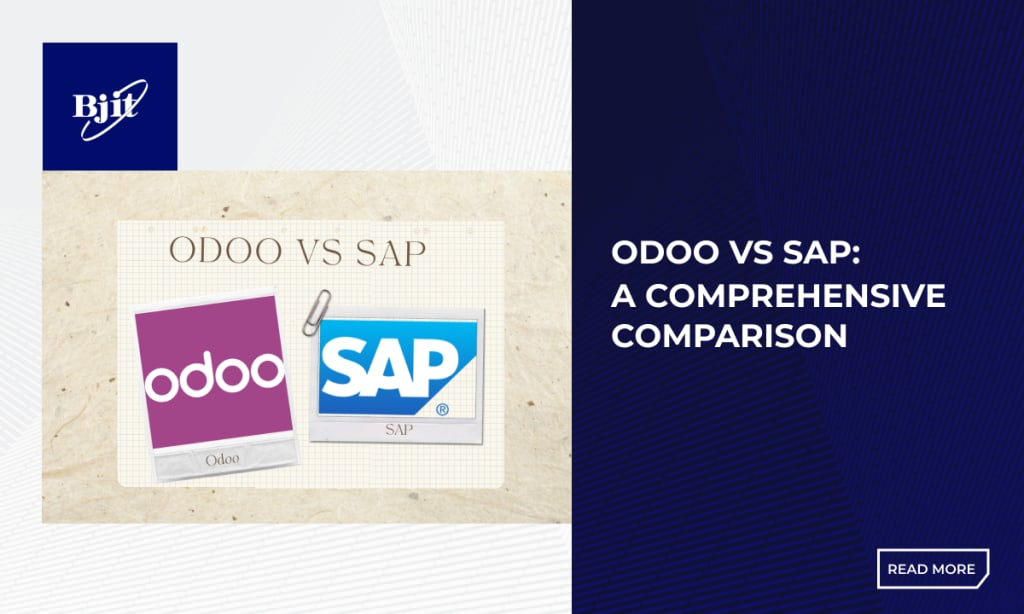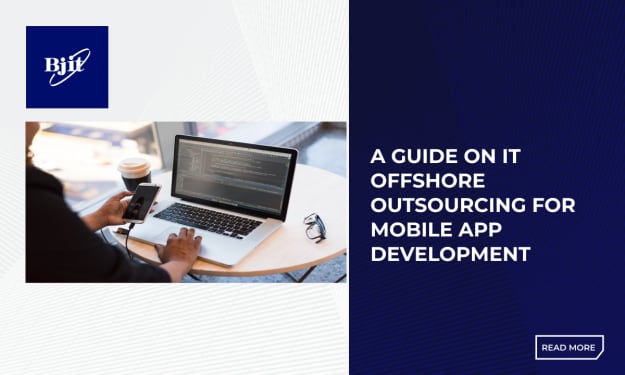
ERP implementation services might be a solution for your business if it experiences operational inefficiencies, different data and systems, time delays, and poor departmental communication. But selecting the appropriate system is comparable to selecting a drug. ERP software is incredibly versatile and provides a wide range of customization options.
Which ERP system would best suit your company's goals, business procedures, and size?
In this post, we contrast two of the most widely used ERPs, Odoo and SAP.
Before deciding between SAP ERP and Odoo, ask yourself these nine questions.
ERP systems provide several advantages, including enhanced reporting and planning, better process visibility, and cost savings. However, no ERP would be equally ideal for all firms, just as no one size fits all.
To assist you in determining which ERP is best for you, or at the very least, which one is not, we have created a list of questions and their respective answers in collaboration with a business analyst and team lead developer with expertise in ERP deployment.
- How many requests must you process each day?
If you get little more than 100 requests per day and don't need to gather and keep a staggering quantity of data, Odoo is the best option. However, if you installed Odoo as a startup and your business has subsequently expanded, skilled developers may adapt the ERP to accommodate the volume of data you handle.
The design of SAP follows a distinct tenet. For businesses that handle hundreds or even millions of requests each day, it has the storage and processing power to handle enormous amounts of data. For instance, Amazon utilizes SAP since it must process more than 66,000 requests every hour. However, processing such massive amounts of data takes forever; SAP's sluggishness is now a joke.
- Are you willing to pay upfront for a simple solution or would you want to receive free out-of-the-box ERP functionality?
The Community of Odoo is completely free but has some restrictions on some modules. To make a comparison, let's use the whole Odoo Enterprise version. Even though SAP Business One (SBO), SAP's alternative for small and medium-sized firms, is on the opposite end of the spectrum, it is still a less expensive solution. How much software you need will depend on how many users and modules you require. In the comparison of SAP and Odoo ERP's expenses, Odoo comes out on top.
SAP's annual and implementation costs are expensive. Costs are significantly higher when applying a full-scale SAP version like S/4HANA because this ERP is designed for enormous companies with thousands of workers. Be aware that even the implementation of the very minimum functionality necessitates substantial financial resources, much alone modification, which you'll almost certainly demand.
- Does your company's flexibility determine whether it will survive?
Odoo enables small and medium-sized enterprises to operate one way now and another way tomorrow to remain competitive. With this ERP application developer, you can quickly put the entire system together from building blocks and, if required, swap out individual parts. The supply chain, for instance, would change if the firm changed its vendors. Survival in these businesses depends on flexibility.
The SAP system is designed for businesses whose existence depends on rigid adherence to procedures rather than flexibility. The key to the successful operation of the entire organization when you have offices or subsidiaries with hundreds or thousands of people in different countries is to adhere to defined business processes.
- How much energy and time are you willing to devote to your ERP project?
The open-source ERP called Odoo is composed of modules and built-in Python. Utilize the ones you require while being open to discovering new Odoo features and solutions. It is simpler for you to locate developers with the right degree of experience and skill thanks to the modular structure and widely used programming language. When comparing the speed of ERP system developers, Odoo and SAP come out on top.
Despite having modules, SAP has a more complicated structure since it caters to the demands of Fortune 1000-listed, huge worldwide corporations. C, C++, Java, and ABAP are used to create the ERP (a high-level programming language invented by SAP). In general, it's not the case that developers can understand the structure and logic of the system at a glance; instead, this ERP calls for experts with at least five years of SAP-specific experience, and finding them can be challenging.
Hire ERP developer from BJIT now to streamline your company and centralize your data so that stakeholders can use it to make informed business decisions.
- Which hosting servers do you choose for the ERP system?
SAP and Odoo may both be set up locally, in a privately hosted cloud, or in a public cloud.
If you wish to install Odoo on your servers, there is a free option available. The license is free.
If you choose SAP, all costs outside server upkeep will be covered by a licensing fee. A permanent subscription, yearly subscription, or consumption payment plan are all options.
- Are you prepared to modify your business operations to accommodate the ERP system? How significant are ease and affordability of customization to you?
Odoo is more adaptable when it comes to adjusting to organizational procedures. Customizing this ERP is simpler and less expensive. Odoo and SAP, however, provide various levels of customization. Given that no two people are exactly the same, it is understandable why the functioning of both is frequently insufficient. The phases of any procedure, including product delivery, exchange, and return, may be changed more easily in Odoo than in SAP, where it would either be impossible or highly laborious and time-consuming. A very precise tie-in to SAP's procedures is necessary. In this area, Odoo performs far better than its competitor.
Odoo vs. SAP ERP is far more complicated. If you want multicurrency capability, multistage product revisions, or convoluted logistics, for instance, it allows complicated customization in addition to detailed customization. If your company is a multinational enterprise, then such a strategy could be required. However, modern ERP also mandates more rigid adherence to its procedures.
You have the option of developing a custom system if you aren't prepared to reorganize your business operations to meet the demands of a pre-made ERP. You'll receive the ERP, which was initially designed for your needs and procedures, but it will take more time and money than fine-tuning the old one.
- When a new version of ERP is released, are you prepared to swiftly begin the data migration process and perhaps change how you now operate once more?
Odoo gives you the scripts for easier data transfer, but you are still responsible for managing data and code conversion on your own.
With SAP's backward compatibility capability, you may avoid having to migrate code or data each time a new version is released. This method not only saves a ton of energy on the scale of businesses that handle terabytes of data every day, but it also enables migration over time without having a significant influence on the processes' pace.
Consider that each ERP has its own data structure; therefore, you must ensure that your data is accurately mapped to the data model utilized by Odoo or SAP.
- How well-equipped are you to handle bug fixing?
Odoo is an open-source ERP with a sizable community, which gives it a big advantage.
The likelihood that vulnerabilities will go undetected decreases as more developers utilize ERP. If someone runs across a defect with Odoo, they may report it on GitHub, explain how to repair it, or seek assistance. As a result, when other developers run into a similar fault, they can quickly and simply fix it.
Contrarily, SAP is a closed-source ERP. You must only rely on the knowledge of your development team and SAP technical support in such a circumstance.
- Do you have a technology partner that can quickly change the modules to comply with new rules?
Whichever ERP you use, the modules will need to be modified as the laws change. For instance, you will need to adjust your accounting module in accordance with any changes to the criteria for managing bills or invoicing.
The adaptability of the Odoo system enables you to meet changing conditions and legal requirements with ease. All essential adjustments may be handled swiftly and painlessly when you have devoted specialists supporting and maintaining your ERP system.
No ERP is "good" or "bad," it may be "for you" or "not for you."
As you can see, a comparison between Odoo and SAP is vague. There is no way to determine which ERP is superior. Both have advantages and disadvantages. The size of the company and the volume of data the system should manage are the main factors to consider when picking a system.
Odoo is best suited for small and medium businesses with straightforward business procedures. The main objective of ERP deployment is to switch from many spreadsheets to a unified system, which will become a single point of truth. A firm may have numerous offices, but their procedures are generally the same. Accounting, warehousing, and other basic work processes may all be covered by Odoo modules.
For Fortune 1000 organizations with more complicated business procedures, SAP implementation services are a more advanced system. An enormous quantity of data may be processed and stored with this ERP.
Endnote
Choosing between SAP and Odoo an appropriate ERP is only half the fight. The degree of expertise on the team in charge of putting it into action is not less significant. To locate next-generation knowledgeable technical allies, get in contact with BJIT, a top software company in Bangladesh.
About the Creator
BJIT
BJIT is the Pioneer to enter the Japanese IT market. Now, BJIT is working with world-renowned clients like Sony, BMW, QUALCOMM, Kyocera, Valmet, Dassault Systemes, NTT Docomo, Panasonic, Fujisoft, Toshiba, etc.






Comments
There are no comments for this story
Be the first to respond and start the conversation.